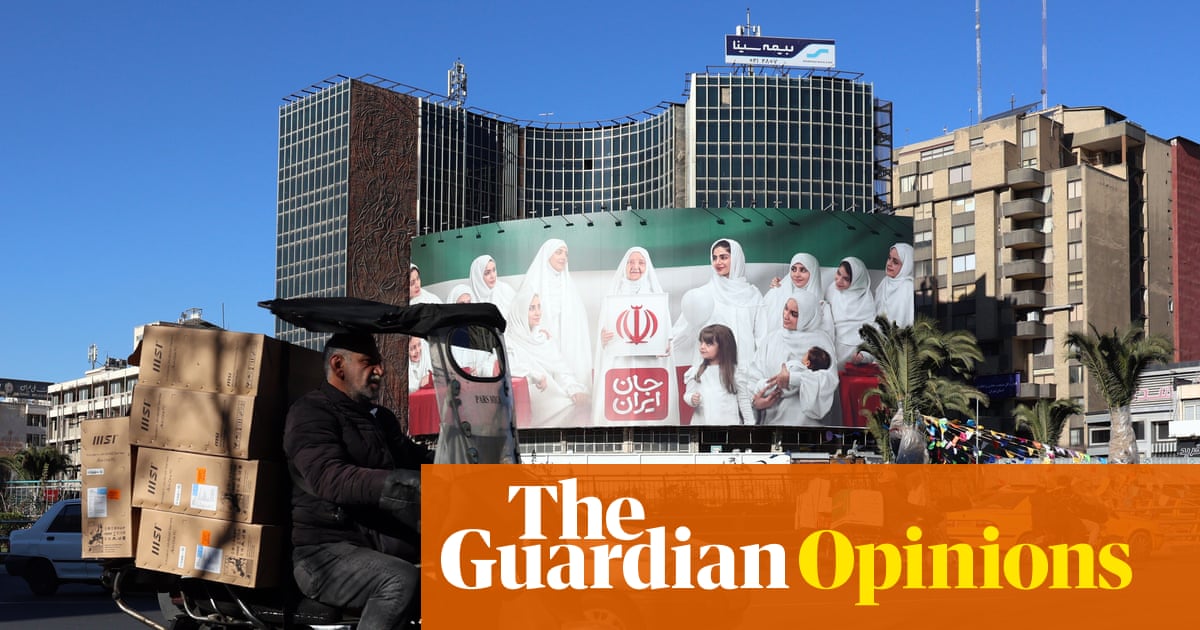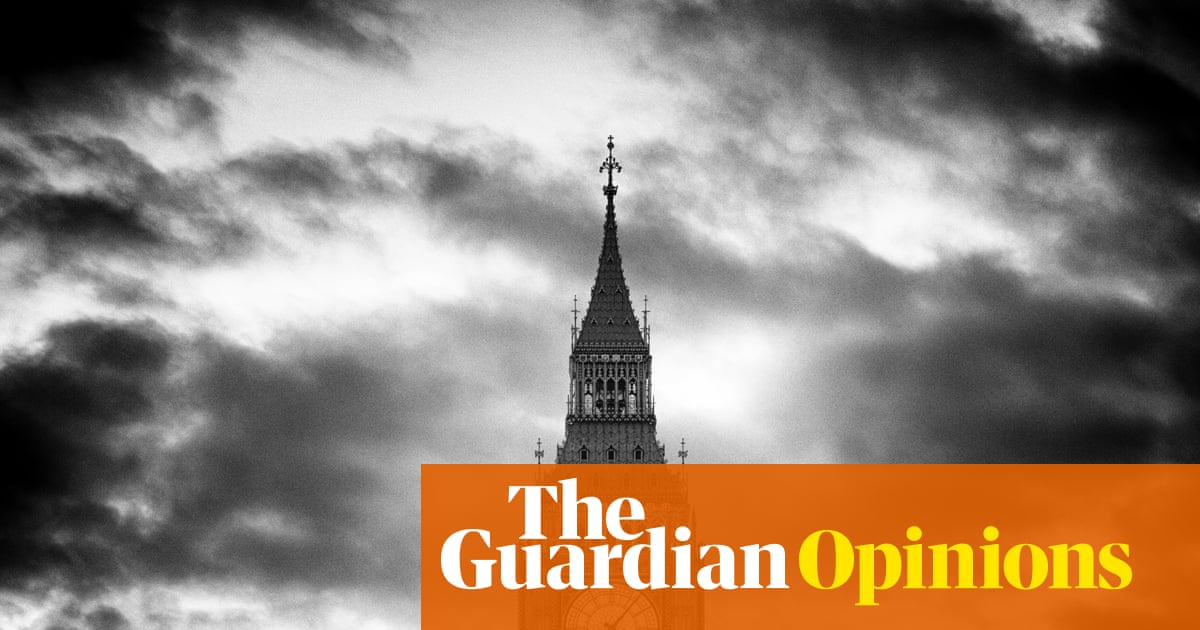Business condition ‘starting to improve’ in UK economy as activity picks up
Newsflash: Conditions appear to be improving in the UK economy this month.
The latest poll of purchasing managers at British firms has found that growth is picking up after the lull in September, partly helped by the resumption of manufacturing at Jaguar Land Rover after its recent cyber attack.
Data firm S&P Global reports that the UK private sector economy “regained some momentum in October”, with stronger output growth underpinned by another modest upturn in the service economy and the first expansion of manufacturing production for 12 months.
This lifted its UK PMI Composite Output Index to 51.1, a level that show modest growth, up from September’s 50.1 (which was barely above stagnation).
Chris Williamson, chief business economist at S&P Global Market Intelligence, explains what the data means:
“October’s flash UK PMI survey brings hope that September was a low point for the economy from which business conditions are starting to improve.
Output has picked up, with a particularly welcome return to growth for manufacturing for the first time in over a year accompanied by an upturn in demand for services, notably among consumers. Business confidence has also brightened slightly, job losses have moderated, and inflationary pressures are coming back to levels consistent with the Bank of England’s 2% target.
However, even with a helping hand from restarted production at JLR, the overall pace of growth signalled by the PMI remains consistent with only sluggish GDP growth of around 0.1%.
Key events Show key events only Please turn on JavaScript to use this feature
UK greenhouse gas emissions drop

Helena Horton
UK greenhouse gas emissions have fallen by 0.5%, mostly fuelled by a downturn in the manufacturing sector, according to the Office for National Statistics.
The sector saw the largest emissions decrease among industries, with emissions falling by 7.4%, from 70 million tonnes of carbon dioxide equivalent (Mt CO2e) in 2023 to 65 Mt CO2e in 2024.
Overall emissions were 476 Mt CO2e in 2024 (provisional), 43.3% below 1990 levels.
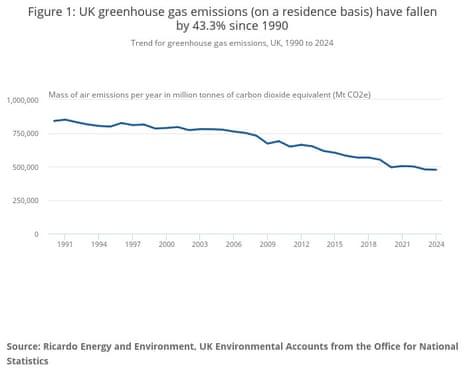
Some sectors saw an increase, including transport, which went up 4.5%, and household emissions which rose by 1.7% – the first time they have risen since the Covid pandemic.
The main driver of this was a 4.1% rise in residential natural gas combustion - heating using gas boilers.
Consumer expenditure remained the largest single contributor to UK emissions on a residence basis, at 26.0% of the 2024 UK total, followed by the transport sector at 16.1%.
November interest rate cut looking less likely after retail sales surge
The odds of a cut to UK interest rates next week have fallen, after retail sales across Great Britain rose to a three-year high last month.
The money markets now indicates there’s only a 35% chance of a rate cut at the Bank of England’s November meeting, down from 40% yesterday.
That follows this morning’s news that retail sales rose by 0.5% in September.
George Vessey, FX & Macro Strategist at Convera, explains:
This stronger print adds weight to the idea that UK consumption remains resilient despite fiscal uncertainty and sticky inflation. It could temper expectations for near-term Bank of England (BoE) easing too, especially if upcoming PMI data also shows improvement. Front-end gilts may fall (yields rise) in response, supporting the pound, particularly if traders reassess the dovish pricing that’s built up over the past month.
“The BoE needs clearer signs that price pressures are easing before loosening policy. Business surveys show firms still expect inflation to average 3.4% over the next year — well above the 2% target — and the IMF recently warned the UK will face the highest inflation among major economies through 2026.
Leonardo staff to strike in pay dispute
The Unite union has announced that more than 3,000 aerospace workers at defence and aerospace manufacturer Leonardo are to strike, in a row over pay.
Unite says strikes will take place next month, after Leonardo refused to improve its pay offer.
Workers have rejected a pay offer of just 3.2%, which Unite points out is a real terms pay cut (as CPI inflation is running at 3.8%), and want Leonardo to make an improved pay offer.
Strikes will take place at Leonardo factories on the following dates:
-
Yeovil, Luton and Basildon – 5-6 and 12-13 November
-
Edinburgh and Newcastle – 5-6, 10-18 November
Unite general secretary Sharon Graham says:
“Our members are highly skilled and work on critical defence and aerospace systems yet are being short-changed by a company making billions.
“Leonardo has had ample opportunity to do the right thing and make a decent offer that our members could have accepted. Instead they have refused and will now see the anger of our members on the picket line outside their factories. This is a dispute entirely of their own making and our members will have the full support of Unite in their fight for decent pay.”
UK cost inflation eases to 11-month low
The good news for businesses, consumers, the Bank of England and Rachel Reeves is that today’s UK PMI report shows cost inflation has eased to an 11-month low.
Costs have still increased “sharply” this month, S&P Global reports, but the overall rate of cost inflation eased to its slowest since November 2024.
They expain:
Service providers recorded a much faster increase in input prices than manufacturers. There were reports that softer raw material price inflation, alongside sterling exchange rate appreciation against the US dollar, had helped to moderate overall cost pressures.
Higher food prices, utility bills and salary payments were nonetheless widely reported in October.
Some UK auto parts manufacturers are still suffering from the JLR hack, today’s PMI report shows, even though the company restarted operations earlier this month.
S&P Global explains:
Survey respondents in the automotive supply chain again commented on challenging business conditions following the JLR cyberattack, despite a boost from the phased restart of manufacturing operations in October.
Business condition ‘starting to improve’ in UK economy as activity picks up
Newsflash: Conditions appear to be improving in the UK economy this month.
The latest poll of purchasing managers at British firms has found that growth is picking up after the lull in September, partly helped by the resumption of manufacturing at Jaguar Land Rover after its recent cyber attack.
Data firm S&P Global reports that the UK private sector economy “regained some momentum in October”, with stronger output growth underpinned by another modest upturn in the service economy and the first expansion of manufacturing production for 12 months.
This lifted its UK PMI Composite Output Index to 51.1, a level that show modest growth, up from September’s 50.1 (which was barely above stagnation).
Chris Williamson, chief business economist at S&P Global Market Intelligence, explains what the data means:
“October’s flash UK PMI survey brings hope that September was a low point for the economy from which business conditions are starting to improve.
Output has picked up, with a particularly welcome return to growth for manufacturing for the first time in over a year accompanied by an upturn in demand for services, notably among consumers. Business confidence has also brightened slightly, job losses have moderated, and inflationary pressures are coming back to levels consistent with the Bank of England’s 2% target.
However, even with a helping hand from restarted production at JLR, the overall pace of growth signalled by the PMI remains consistent with only sluggish GDP growth of around 0.1%.
Eurozone business activity growth accelerates, but France drags the economy back
Eurozone business activity is growing at a faster pace this month, new data shows, lifted by a pick-up in new orders.
Data firm S&P Global reports that output across the eurozone private sector is rising at its fastest rate in 17 months in October. Its HCOB Flash Eurozone Composite PMI index has risen to 52.2 in October, from 51.2 in September, showing faster growth.
Purchasing managers across the eurozone reported the strongest increase in new orders for two-and-a-half years.
In Germany, output growth hit a 29-month high… but France posted a fourteenth consecutive monthly reduction in output, in a month dominated by political uncertainty.
Dr. Cyrus de la Rubia, chief economist at Hamburg Commercial Bank, says:
“France is increasingly becoming a drag on the eurozone economy. While the economic situation in Germany brightened significantly in October, the rate of contraction has accelerated for two months in a row in France.
As a result, economic growth in the eurozone, even though accelerating a bit, has been much weaker than it otherwise could have been. Uncertainty about whether the current government under Sebastien Lecornu can remain in power for much longer in view of the disputes over the 2026 budget is causing unease and contributing significantly to the weak economic situation in France.
As an important buyer of products and services from other eurozone countries, France’s weakness contributes to the fragility of the recovery in the rest of the eurozone
Shanghai stocks scale 10-year high as chip and AI firms jump
Over in Shanghai, a jump in technology stocks has pushed the City’s stock index to a 10-year high.
The Shanghai SE Composite index rose 0.7% today to 3950 points, the highest level since August 2015.
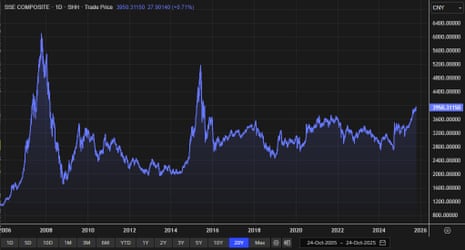
Chip-making and artificial intelligence (AI) stocks climbed after Beijing vowed to focus on technology and security to achieve technological self-reliance, at the end of policymakers’ four-day meeting.
Record weekly inflow into gold funds
UK shoppers aren’t the only people snapping up gold.
Gold funds received their largest weekly inflow on record in the week to Wednesday, Bank of America Global Research have reported.
Gold funds saw inflows of $8.7bn in the week BofA said, putting the inflows over the last four months at $50bn.
Gold hit a record high of $4,381.21 per ounce on Monday, more than 60% higher than at the start of this year, before dropping back.
Right now, it’s changing hands at $4,091.20 per ounce.
NatWest lifts FTSE 100 to new record high
Britain’s blue-chip stock index has hit a fresh record high in early trading.
The FTSE 100 index has risen over Thursday’s record peak of 9594 points, and just touched 9595.72.
NatWest bank is leading the risers, up around 5% after reporting a jump in profits this morning. It’s followed by DIY chain Kingfisher (+2.7%)
Back in the world of the trade wars, Swiss President Karin Keller-Sutter has declined to say whether her country could strike a deal on tariffs with U.S. President Donald Trump this year.
“It’s not possible to forecast,” Keller-Sutter said in a Tages-Anzeiger newspaper interview published on Friday when asked about the possibility of an agreement in 2025. “Everything depends on whether the U.S. president gives the green light or not.”
Relations between the two sides are strained, after Trump imposed 39% tariffs on Switzerland in August, a serious threat to Swiss exports to the US.
NatWest profits jump 30% as lending increases

Kalyeena Makortoff
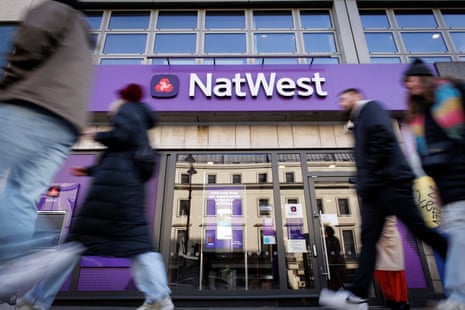
NatWest has reported very strong numbers this morning, with pre-tax Q3 profit up 30% - a stark contrast to its rival Lloyds Banking Group which reported a 36% drop yesterday.
A significant difference between them, of course, is NatWest’s lack of exposure to the car loans commissions scandal, unlike Lloyds which is at the heart of the storm, having put aside another £800m to cover customer compensation in the last quarter.
Meanwhile, NatWest has been able to charge ahead, with broad-based increase in customer lending to both consumers and businesses helping to push its pre-tax profits up 30.4% to £2.18bn in the three months to the end of September. That is up from £1.67bn during the same period last year.
It also benefited from a drop in impairment charges to £153m compared to £245m last year, when it took a charge following its acquisition of Sainsbury’s Bank.
NatWest has been shedding jobs, around 600 over the past 12 months, 100 of which were in the last quarter alone. “Our focus remains on driving cost savings to create capacity for further investment to accelerate our bank-wide simplification,” the bank says.
However, that didn’t provide a major boost to the bottom line, given overall, operating expenses were £171m higher since last year.
But the once bailed out bank - which shed its final UK government stake earlier this year - said it was now upping its full year profitability and income guidance. It now expects income to come in at £16.3bn (excluding notable items) for 2025, solidifying previous forecasts for income greater than £16bn.
CEO Paul Thwaite said:
“As a result of our consistent delivery and capital generation, we have upgraded our income and returns guidance for 2025 and are well placed to support our customers, invest for the future and deliver returns to our shareholders.”
Retail sales: What the experts say
UK economists were surprised to learn that retail sales volumes rose by 0.5% across Great Britain in September, as the consensus was for a 0.2% fall.
Oliver Vernon-Harcourt, head of retail at Deloitte, says:
“The unexpected rise in retail sales in September will be a positive boost for retailers, particularly when combined with the uplift of 0.9% in sales volumes in the three months to September.
“There are signs that big ticket purchases are back on the cards for some, with an uptick in the sale of tech like computers and phones, as well as household goods and furniture. This indicates that budgeting for major purchases is becoming more of a priority for consumers.
Alex Kerr, UK economist at Capital Economics, doubts that this strength will be sustainable, given weak employment, high inflation and tax rises on the horizon:
The resilience of the retail sector was fairly broad based, with sales rising in four of the seven sub sectors, with household goods and other stores posting healthy 1.2% m/m and 2.1% m/m gains, driven by strong sales of computers and mobile devices. Online sales rose by 1.5% m/m with the press release citing strong demand for gold at online jewellers, perhaps fuelled by the surge in gold prices this year.
Elsewhere, despite the decline in food CPI inflation in September, sales at food stores fell back by 0.1% m/m, underlining that households probably care more about the sustained increase in the level of food prices over the last few years.
Kien Tan, senior retail advisor at PwC UK, says retail sales have continued their slowly improving trend over the last three months:
“The autumnal weather certainly helped fashion sales, with clothing retailers continuing their run of outperformance and encouraging shoppers to refresh their wardrobes with the newest season trends.
“However, autumn showers also discouraged shoppers from visiting physical stores, as high street footfall fell and the proportion of sales online increased to 28%, which is the highest penetration of online retail since the end of the pandemic.
Canadian dollar weakens as Trump terminates trade talks
The Canadian dollar has weakened slightly after Donald Trump blew up the US-Canada trade talks overnight.
The Canadian currency has dropped by 0.2%, to 1.4018 to the US$.
In a post on his Truth Social site, Trump accused Canada of fraudulently using a “FAKE” advertisement featuring Ronald Reagan speaking negatively about tariffs, to sway a decision from America’s highest federal court on the legality of US levies on imports.
Trump declared:
They only did this to interfere with the decision of the U.S. Supreme Court, and other courts. TARIFFS ARE VERY IMPORTANT TO THE NATIONAL SECURITY, AND ECONOMY, OF THE U.S.A. Based on their egregious behavior, ALL TRADE NEGOTIATIONS WITH CANADA ARE HEREBY TERMINATED.
Introduction: Retail sales rise, lifted by warm weather and gold demand
Good morning, and welcome to our rolling coverage of business, the financial markets and the world economy.
Retail sales across Great Britain have risen, in a sign that consumer spending is holding up despite the pressure from inflation.
New data from the Office for National Statistics this morning shows that retail sales volumes increased by 0.5% in September, and were 1.5% higher than a year earlier. Economists had expected a 0.2% monthly drop.
The ONS reports that sales grew strongly at non-food stores, including computer and telecommunications retailers.
A “notable contributor to this rise was online jewellers reporting a strong demand for gold”, the ONS says – as some consumers have flocked to bullion as its price rose to record highs this year.
Overall, sales volumes hit to their highest level since 2022 in September – although they are still 1.6% below their levels in February 2020 before the first Covid-19 lockdown.

Sales volumes are also their highest since 2022 over the last three months. In the quarter to September, sales volumes rose by 0.9% with the hot weather in July and August boosting clothing sales.
ONS senior statistician Hannah Finselbach says:
“Retail sales rose quite strongly in the latest quarter and were at their highest level since summer 2022. Although food stores saw very little growth, good weather in July and August boosted sales of clothing, while online retailing also did well.
“Retail sales also grew over the month of September, with tech stores seeing a notable rise in sales, while online jewellers reported strong demand for gold.”
Also coming up today
Hopes of a breakthrough in US-Canada relations have taken a blow, after Donald Trump has said he is ending “all trade negotiations” with his northern neighbour after the release of a television ad opposing US tariffs.
The US president accused Canada of “egregious behavior” aimed at influencing US court decisions.
And after weeks of disruption caused by the government shutdown, investors will finally be shown some official US economic data today!
The Bureau of Labor Statistics is expected to publish its September inflation report today, which is expected to show the CPI index rose by around 3.1% over the last year, above the Federal Reserve’s 2% target.
The agenda
-
7am BST: Great Britain retail sales report
-
9am BST: Flash eurozone PMI report
-
9.30am BST: Flash UK PMI report
-
1.30pm BST: US inflation report for September
-
3pm BST: University of Michigan US consumer confidence report

 2 months ago
48
2 months ago
48




